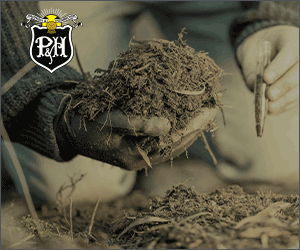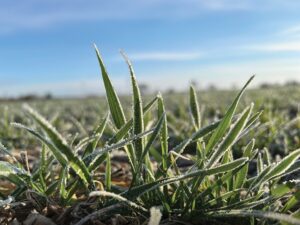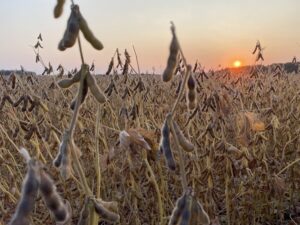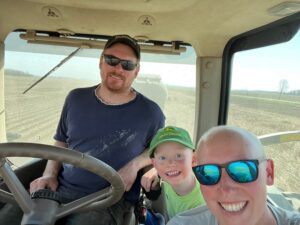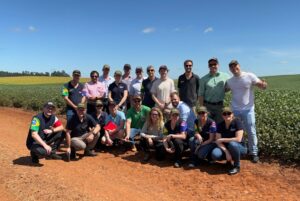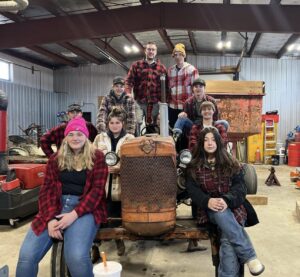The mental health advocates
TURNING UP THE VOLUME ON FARMER WELLNESS
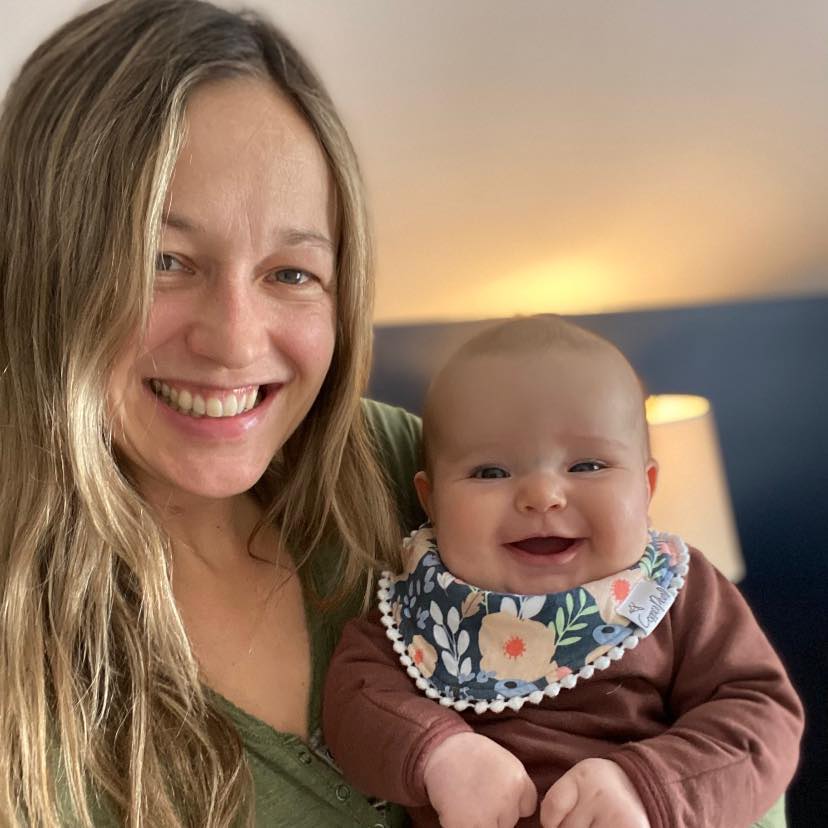
MENTAL HEALTH IS THE STATE OF OUR EMOTIONAL, PSYCHOLOGICAL AND SOCIAL WELL-BEING. It impacts how we think, feel, and act and plays a significant role in how we cope with stress.
Mental health is receiving more attention in agriculture than ever before. Farmer wellness is being researched, and numerous groups have developed mental health services and resources specifically for farmers and their families.
But there’s also a growing number of individuals who are turning up the volume on mental health in agriculture. Passionate advocates like Belinda Bowman, Stewart Skinner, and Beth O’Neil are speaking out about important topics in hopes of encouraging and supporting others.
BELINDA BOWMAN, GRANTON, ONTARIO
When Bowman suddenly became a widow in her early 30s, grief took her to a dark place. Her fiance, Troy Snobelen, of Snobelen Farms in Lucknow, was tragically killed in a snowmobile accident in 2019.
“I first went into a state of complete shock and felt frozen in time,” she recalls. “I didn’t want to talk to people, but a close friend recognized the signs and took me to see a counsellor.”
Bowman moved in with her parents and began seeing a therapist, who diagnosed her with trauma, post-traumatic stress disorder, and anxiety.
But farm work quickly became her coping mechanism. “I would hear Troy’s voice yelling at me when I was in the barn doing something dangerous, but instead of stopping, crying and feeling sad, I would make a list of other jobs I had to do,” she says. “It was unhealthy and toxic, but working harder was the only way I could recognize any sort of self-worth.”
Bowman attempted to take her life on two occasions. But, after receiving support through a hospital mental health service and participating in therapy sessions for many months, she learned how to process and understand her feelings. A printable feelings wheel helped her identify emotions and what triggers them.
“All of a sudden, I decided that I wanted to live, and I knew I needed to get better in order to do that. I had to accept that grief will always be part of my life,” she says.
Since it was difficult for Bowman to talk about her mental health, writing became an important outlet. She started by writing letters to Snobelen and journaling her daily feelings as a way to process them.
Then, she began posting about her experience on Instagram (@bb_cattleco), and a new support network was formed. She says that sharing her story publicly and connecting with people who have experienced similar losses has been healing.
Today, Bowman raises beef cattle, sheep, and crops with her partner, Jeremy O’Shea. She has carried out many of the farm business plans she made with Snobelen and feels he is always watching over her.
Bowman continues to document her journey on Instagram and encourages her nearly 17,000 followers to give themselves the gift of self-care and improve their mental well-being by talking to a professional when needed.
While waves of grief and sadness still hit her, she has found that letting her inner circle of people know how she handles dark days has helped. Since her tendency is to isolate herself and stay quiet, Bowman’s family and friends now know to reach out and encourage conversation.
She also reminds people to keep a close eye on their loved ones.
“Other people often identify mental health issues before the person themself does, but pushing too hard usually ends up getting the wrong results,” Bowman says. “Be stable for that person until they’re ready to stand up on their own and be there when they’re ready to put their hand up and ask for help.”
STEWART SKINNER, LISTOWEL, ONTARIO
Like Bowman, Skinner has come face-to- face with mental illness. He has dealt with depression and anxiety his whole life but first experienced a downward spiral in 2012.
Skinner had returned home to his family’s swine operation after completing a master’s degree. He implemented a carefully planned herd expansion project, but it wasn’t long before corn prices soared and hog prices fell. The operation was in the red, and losing everything his parents had built became a real possibility.
“I couldn’t sleep or communicate with loved ones as I retreated down the dark path of depression,” he explains. “My self-hate knew no bounds. I would be paralyzed in the seat of my car when I got to the barn because I was dreading actually going into the building, and I would scream at myself in the barn when I made simple errors.”
One December day, he lost all hope and contemplated taking his life in the barn.
Fortunately, something made him stop and call his parents. When they reacted with unconditional love, he knew he made the right decision.
Thanks to his supportive family, Skinner was able to take a break from his farm responsibilities to focus on his health. He also took a trip to Kenya to work with farmers, which allowed him to slow down and rediscover happiness, he says.
Skinner started talking publicly about his mental health journey in 2013. He initially blogged about his experience and was soon invited to be a guest speaker at meetings and conferences.
“My personal experiences have motivated me to get involved because I know not every person is lucky enough to have the support system I have,” he says. “I have found that sharing my experiences publicly can help others find healing, and it also helps me in my personal mental health journey.”
In 2015, Skinner and his wife, Jessica Kelly, purchased a sow herd from his parents and started their own business. They also grow organic crops in Bruce County.
Despite the inevitable stress of building a business, the couple purposefully implemented strategies to protect their mental health. For example, Skinner doesn’t book early morning meetings because he knows sleep is important to his well-being. Since he farms full-time, he makes an effort to take regular breaks for non-farm activities, such as playing sports, going to church, and visiting friends.
Unfortunately, Covid-19 limited access to recreational and social activities for a period of time. Then pig shipments came to a halt, disease issues ramped up, and feed costs increased. The combination was overwhelming, and the stress took a toll on Skinner’s mental health.
“There were two periods in 2021 when suicide was as close for me as ever, with a mind desperate to escape the pain and only a mental image of a loving partner and two beautiful children to shine through the darkness,” he says.
Looking back, Skinner believes the challenges of 2021 likely made him a better farmer. But he says it also made him more cynical about the progress our society has made in terms of mental health.
He advocates for a national helpline for farmers, a pharmacare system where financial position doesn’t impact the process of finding the right medication, and improved accessibility to therapy.
Skinner and Kelly were recognized as the 2023 Ontario Outstanding Young Farmers.
BETH O’NEIL, AILSA CRAIG, ONTARIO
O’Neil is passionate about improving mental health in agriculture and has taken a unique approach to advocating.
She grew up on her family’s beef and crop operation and while she enjoys helping on the farm, she isn’t pursuing a traditional career in agriculture. Instead, O’Neil is studying mental health with the goal of becoming a registered psychotherapist who specializes in working with the farming community.
“I have always been interested in the area of mental health, and over time, I’ve realized how important it is in agriculture,” she says. “I want to combine my background and education to provide understanding and assistance to those living in the unique culture that is agriculture.”
O’Neil studied psychology at the University of Guelph and is now pursuing a master’s degree in counselling psychology at Yorkville University. She stays informed about the latest farmer mental health research and incorporates an agricultural perspective into her studies whenever possible.
She is also an active volunteer with the Guardian Network (guardiannetwork.ca), a peer-driven community that supports Ontario’s farming community.
“Guardians are trained to identify when someone is struggling with mental health or suicidal thoughts, effectively communicate with that individual about hard topics, decrease the stigma of getting help for mental health, and provide appropriate resources so they can access professional support,” explains O’Neil.
The prevalence of mental illness, suicide idealization and suicide in agriculture is ultimately what is driving O’Neil to continue her education and become registered.
“When you think about mental health and what can impact it, a lot of it is about the stressors that are in your environment and how the stressors impact you and your family,” she explains. “In farming, there are so many things out of your control that impact your income, and it can be hard to work with family and live on the same property you work on.”
To anyone who may be currently struggling with their mental health, O’Neil shares this message: “You are not alone. If you were to bring up a discussion about what you’re feeling with another person, it’s very likely that they have had a similar experience at some point in their life. There are confidential resources available to you and you are not weak for accessing professional help.”
She encourages participation in the Farmer Wellness Initiative, a program that provides Ontario farmers, farm families, farm employees, and spouses and dependents of farm employees with free, unlimited mental health counselling. THE SUPPORT LINE (1-866-267-6255) IS ACCESSIBLE 24 HOURS A DAY, SEVEN DAYS A WEEK AND EVERY DAY OF THE YEAR. •


